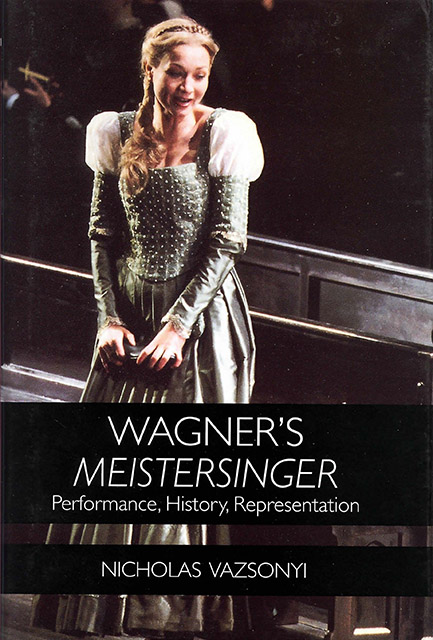11 - “I Married Eva”: Gender Construction and Die Meistersinger
Published online by Cambridge University Press: 25 March 2023
Summary
I
The German press recently reported on a study that examined whether or not equal rights had made it into the home. Although wives claimed that their husbands did half the housework, statistics revealed that, on the weekends, women took on these chores as a matter of course irrespective of any additional work they may have had. Thus women had a greater burden without even being aware of it. The fact that women have always been responsible for the household has effectively blurred their vision. Embedded traditions and ideologies also affect the objectivity of scholarly investigations and result in flawed studies.
This could also be why, within Meistersinger scholarship, so little has been written about Eva Pogner, “the purest of German maidens”; this is remarkable, considering the abundance of Wagner literature. As a female stereotype par excellence, she corresponds to all the stereotypes of the traditional bourgeois woman. The existing literature discusses her with evident satisfaction, since she so exactly fits the model of the ideal women, giving her a sacrosanct aura and protecting her from overly critical analysis. Max Josef Beer describes Eva as being, among other things, “lovely,” “charming,” having a “sweet simplicity,” “naturalness,” and a “special kindness.” Wilhelm Broesel also sees Eva as “modest,” “charming,” “winsome,” “traditional,” “virtuous,” “natural,” “innocent,” “sweet,” and “full of genuine naïveté.” German musicologists still condescendingly use the diminutive “Evchen” as if they identified themselves with Sachs, who often addresses Eva as “child” and “Evchen” and who does not take her particularly seriously.
In recent years, efforts have been made methodologically to loosen the rigid separation between biographical versus musical-aesthetic research. Achieving this goal would be particularly important in the case of Richard Wagner to effect a closer understanding of his works and thereby eliminate misunderstandings. For a long time, the biographical method was dismissed as being a merely hackneyed approach, and even the operas were considered exclusively in musical-political or musical-aesthetic terms. While it is true that, especially during the years he enjoyed the protection of Ludwig II, Wagner sought to transform art and musical-political creativity, it would nevertheless be a mistake to efface the erotic impulses driving his creations as Carl Dahlhaus does when he describes as “the” theme of Die Meistersinger, Wagner's thesis that art is the sole justification for life.
- Type
- Chapter
- Information
- Wagner's MeistersingerPerformance, History, Representation, pp. 209 - 225Publisher: Boydell & BrewerPrint publication year: 2003



